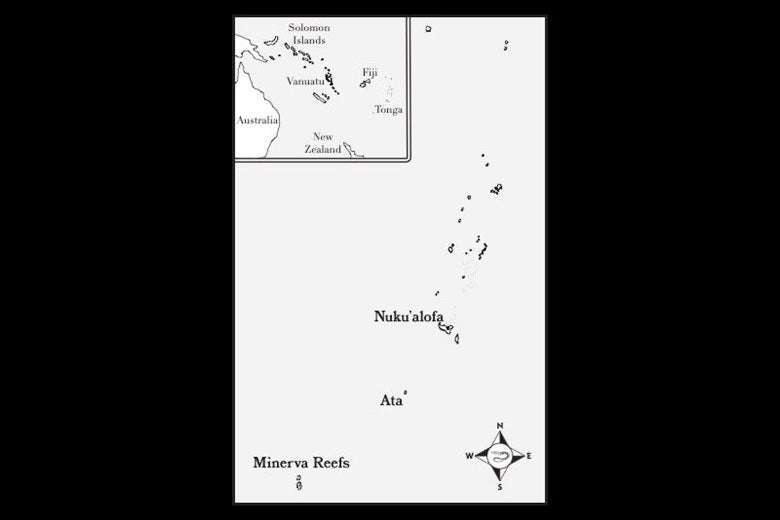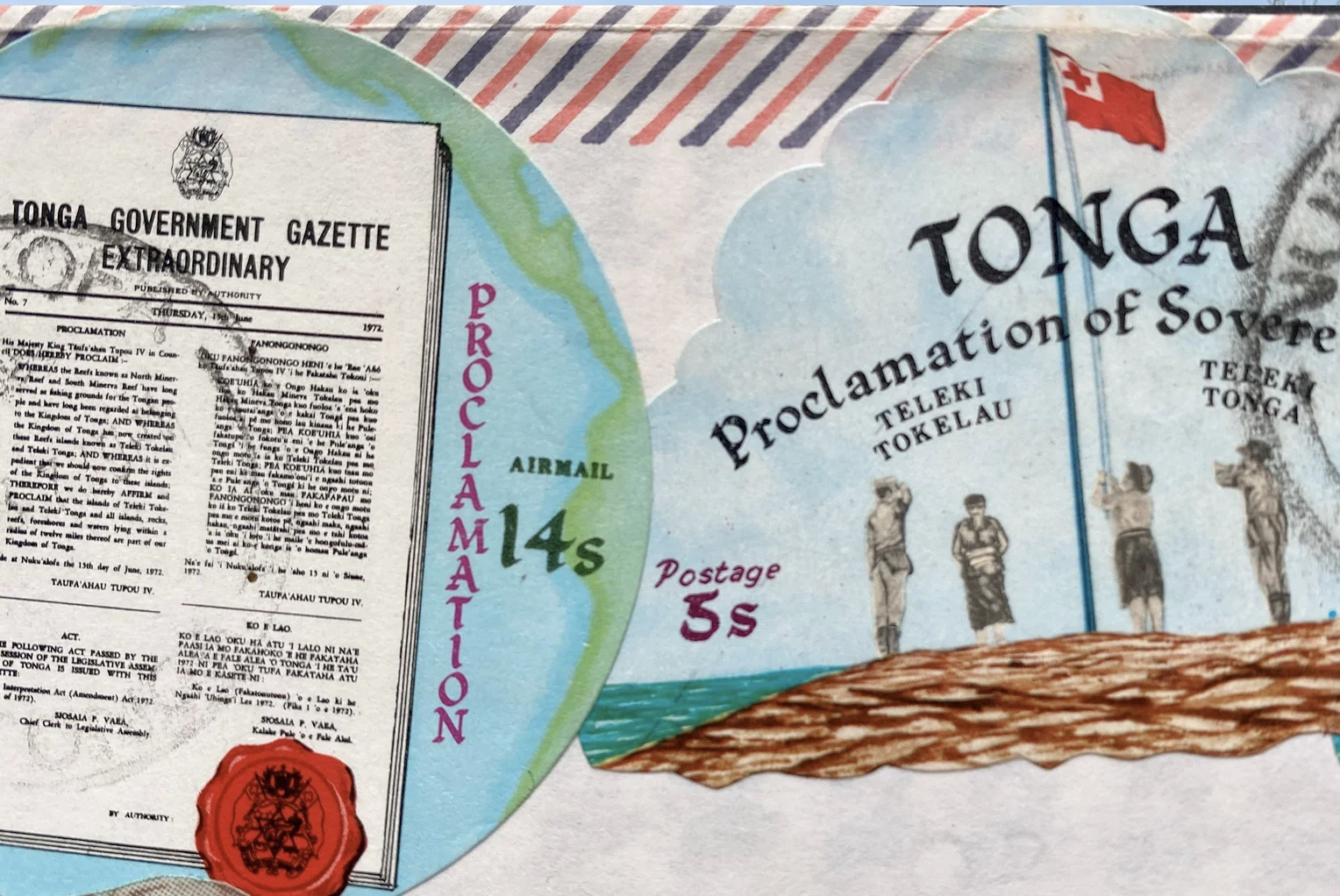A wealthy American wanted to build an island republic. The king of Tonga had other ideas.
By Raymond Craib
Slate
May 21st, 2022
Once upon a time, a wealthy man set out to establish his own country. He found a shallow reef over which the waters of a vast ocean had lapped since time immemorial. He hired a company to dredge the ocean floor and deposit the sand on the reef. An island would be born, upon which the man had a concrete platform built, a flag planted, and the birth of the Republic of Minerva declared. The monarch of a nearby island kingdom was not impressed. He opened the doors of his kingdom’s one jail and assembled a small army of prisoners. The monarch, his convicts, and a four-piece brass band boarded the royal yacht and descended upon the reef, where they promptly removed the flag, destroyed the platform, and deposed, in absentia, the man who would be king. And Minerva returned to the ocean.
The story of Michael Oliver, his short-lived 1972 Republic of Minerva, and the response of the king of Tonga is not the stuff of fairy tales. Nor is it an uncommon story, an isolated event ripe for consumption as a chronicle of crazy rich Caucasians. In the U.S. after World War II, with the dramatic geopolitical changes wrought by decolonization and the Cold War, battles were waged over the meaning of ideals such as democracy and freedom, often pitting those who believed individual liberty to be more important than social equality against those who prioritized the latter over the former. In the midst of such struggles, individuals concerned with protecting their wealth, their safety, and their freedom from what they perceived to be an overbearing government and a threatening rabble sought to exit the U.S. and to establish their own independent, sovereign, and private countries on the ocean and in island spaces. It usually did not end well.

Experiments in libertarian exit—abandoning one’s country of residence for a private territory where social relationships are structured largely through contract and exchange—like the one Michael Oliver undertook were not unusual in the America of the 1960s and 1970s. They proved common enough that writers for the Los Angeles–based libertarian Innovator Magazine priced out the costs of various forms of exit, from “clandestine urban” and “underground shelter” to “sea-mobile nomad.” It was only a small step to imagine a commune on the high seas rather than in Northern California, or a private island in the Caribbean rather than a gated community in Orange County. Libertarian-inspired exit projects proliferated to the degree that one might recast the 1960s not as the dawning of the Age of Aquarius, but as the Age of Atlantis, the favored island reference point for libertarians.
The name itself was ubiquitous. The “Republic of New Atlantis” arose, albeit briefly, in 1964 when Ernest Hemingway’s younger brother Leicester parked an 8-by-30-foot bamboo raft, anchored to an old Ford engine block buried in the sand, 8 miles off the coast of Bluefields, Jamaica. He declared the birth of his new republic with a bottle of Seagram’s 7 in hand. Having encouraged birds to defecate on one end of the raft, he ceded that portion of it to the U.S. under the criteria established in the 1856 Guano Islands Act, which allowed citizens to claim possession of unoccupied islands, rocks, or keys that contained guano on behalf of the U.S. The raft’s other half became his own private country, albeit only briefly; a hurricane soon sank the vessel. Pharmaceutical engineer Werner Stiefel, whose family had fled Nazi Germany in the 1930s, founded “Operation Atlantis” in 1968 in a motel next to I-87 in upstate New York. He recruited libertarian “immigrants” to collectively build a vessel that they would sail down the Hudson River to the Caribbean where they would establish a libertarian micronation. Like its namesake, it met a watery fate. Upon launch on the Hudson, the vessel capsized and caught fire. The Atlanteans, undeterred, repaired the ship and sailed it to the Bahamas, where it promptly sank during heavy weather.







